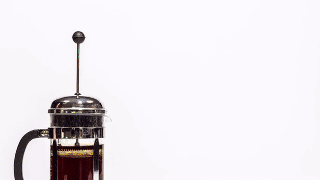
Yadier Molina is one of the best defensive catchers of all time, his nine Gold Gloves ranking third in baseball history at the game’s most challenging position, behind Ivan Rodriguez’s 13 and Johnny Bench’s 10.
This year, though, Molina is not among the three finalists for the National League’s award, and he’s angry about it. The 38-year-old pending free agent went on Instagram and alleged that “it’s clearly that they don’t want this Boricua Jibarito to [tie Bench]. … I’m still the best.”
Does Molina have any evidence of this conspiracy to keep him from drawing alongside Bench in the record books? Of course he doesn’t, because the “they” who decided on this year’s Gold Gloves are… numbers.
Specifically, the numbers are the SABR Defensive Index, used by Rawlings this year to determine the Gold Gloves because of the shortened season, with no human element involved at all — a human element that traditionally has rewarded past-their-prime veterans (ahem) with awards earned based on reputations.
The numbers said that Molina, who made as many errors this season as noted defensive liability Gary Sanchez of the Yankees, ranked behind finalists Tucker Barnhart, Willson Contreras, and Jacob Stallings — which means that Molina wasn’t even in the top half of defensive catchers in the National League Central this season.
Is that debatable? Maybe, but in this case it would mean arguing with numbers, and Molina’s this year, aside from throwing out 5-of-11 potential base stealers, were not good.
Molina’s five errors in 42 games were his most since he made seven in 2017 in 133 games. His three passed balls equaled his total from his Gold Glove-winning 2014 season. And 14 wild pitches got by Molina, tied for fifth-most in the league. Molina was seventh in the NL in Defensive Runs Saved, with one, putting him behind such backstops as Stephen Vogt and Jacob Nottingham, while Austin Nola and Austin Hedges were harder to run against, previously Molina’s calling card as the best in the business.
The numbers don’t lie, aren’t biased, and have no agenda against Molina. They’ve favored him in the past. This year, they didn’t. Because he’s not the best anymore. The confidence that he has to believe that he is… is part of the reason he’s still as good as he is at 38. But Molina also knows that his Hall of Fame case is going to rest on his defensive resume, because with a .737-and-sinking career OPS, in a career that will end with fewer than 200 home runs in a dinger-happy era, he needs as much credit as he can get on the defensive side.
Molina was, inarguably, the best defensive catcher in baseball in the 2010s. But time comes for us all, and that’s all that’s happened here, not a grand conspiracy against Molina by the nefarious forces of mathematics.













